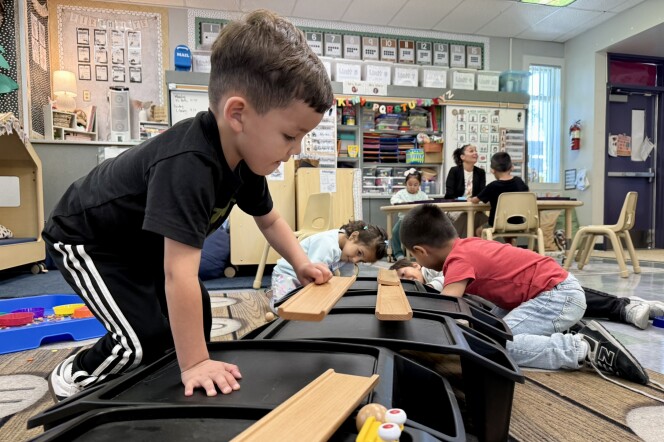With our free press under threat and federal funding for public media gone, your support matters more than ever. Help keep the LAist newsroom strong, become a monthly member or increase your support today.
Elusive Knuckleball Gives Pitcher Chance at Majors

Pitcher R.A. Dickey was on the verge of a Major League Baseball contract with the Texas Rangers when doctors discovered that he was missing a key ligament in his arm. In just a few days, his chance at realizing his childhood dream — and an $810,000 contract — evaporated.
So Dickey, who had been a star pitcher for the U.S. Olympic team, reinvented himself by learning to throw the unconventional and elusive pitch known as a knuckleball.
It's a pitch that meanders to home plate at low speed and flutters unpredictably in the strike zone. Batters who can connect on a 95 mph fastball — or even hit a major league curveball — can be absolutely baffled by a good knuckleball.
And after nearly a decade in the minors, Dickey, now 33, has honed his knuckleball skills — and signed as a prospect for the Seattle Mariners.
Dickey talks with Robert Siegel about the photograph that led to the discovery that he lacked an ulnar collateral ligament in his right elbow — and that crushed his initial dreams of playing in the major leagues.
He says that during his many years toiling in the minor leagues, he felt compelled to pitch and perform well enough so that he wouldn't be known as the guy "with no ligament; I would be the guy who could get big league hitters out."
It was legendary pitcher Orel Hershiser who first suggested that Dickey could prolong his career if he became a knuckleball pitcher.
And Dickey has been on the journey ever since.
Most knuckleball pitchers have the most success between the ages of 31 and 41, Dickey says, and he is optimistic about his future.
"When I sink into the fact that I'm a knuckleballer now — not a conventional [pitcher] — it frees me up to be me. Because of that, I can really compete at a high level with it," he says.
Copyright 2023 NPR. To see more, visit https://www.npr.org. 9(MDA1OTI3MjQ5MDEyODUwMTE2MzM1YzNmZA004))







